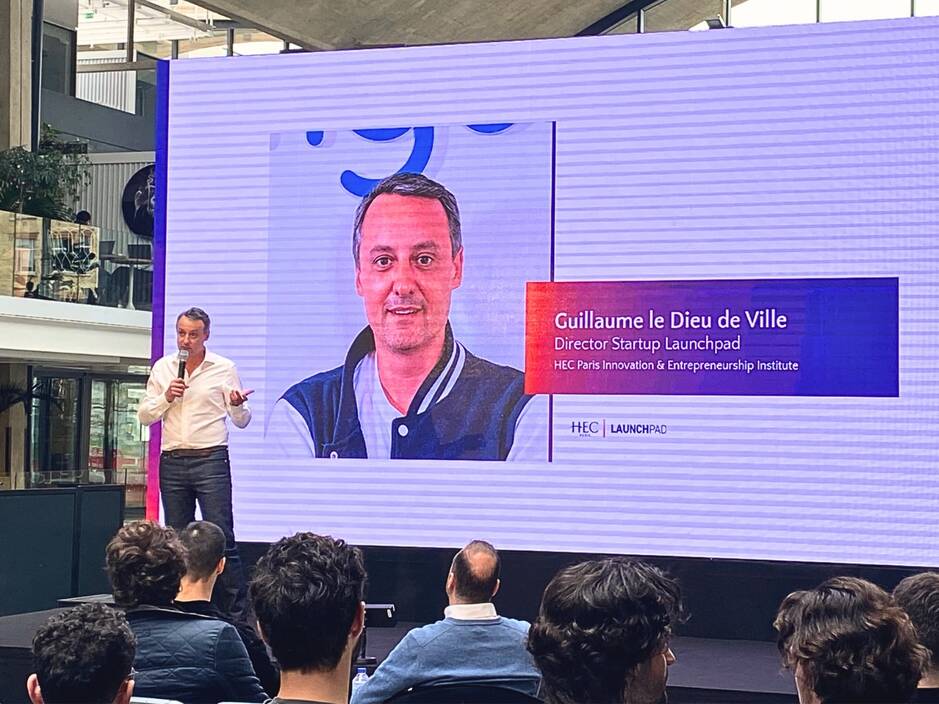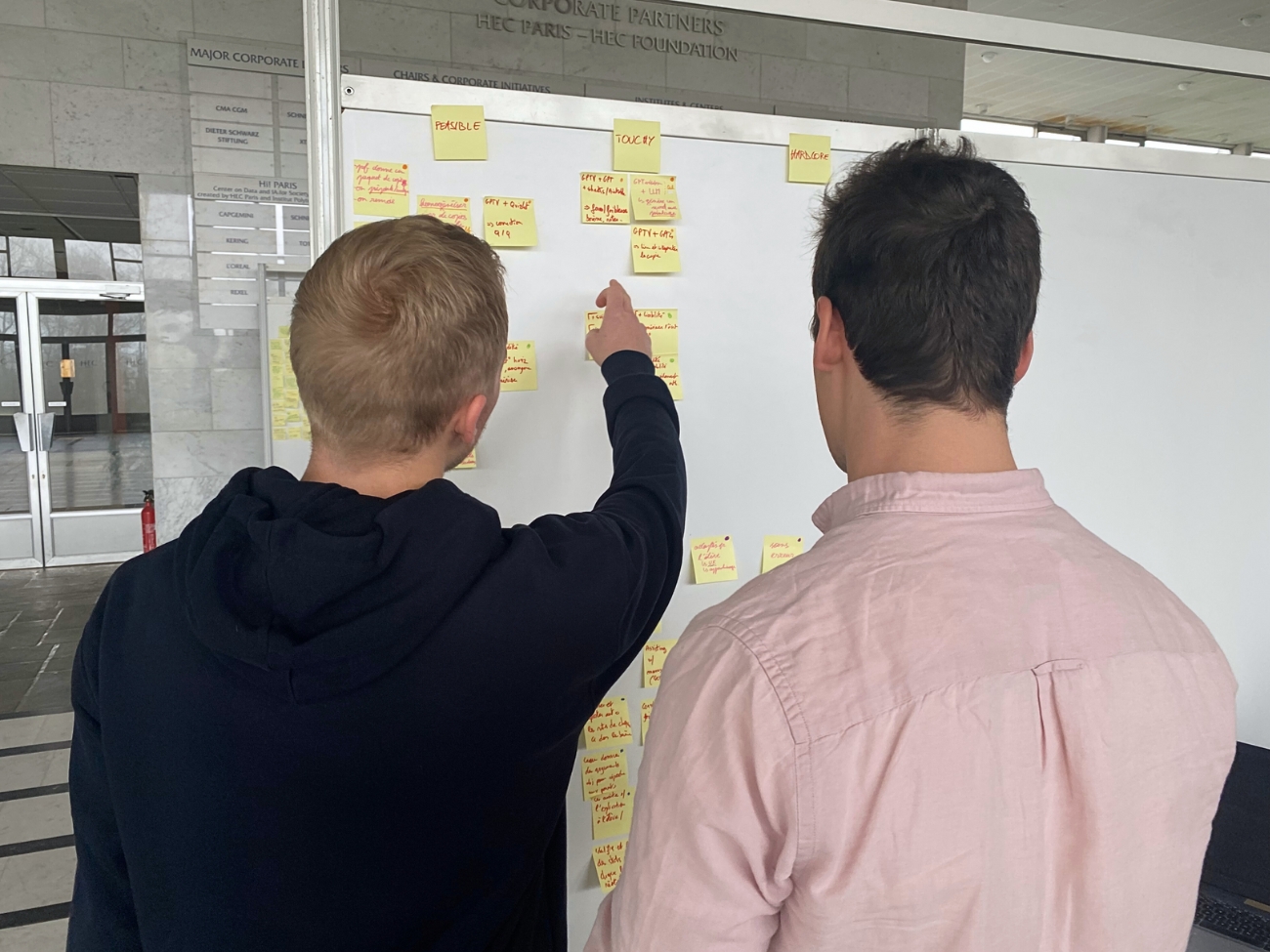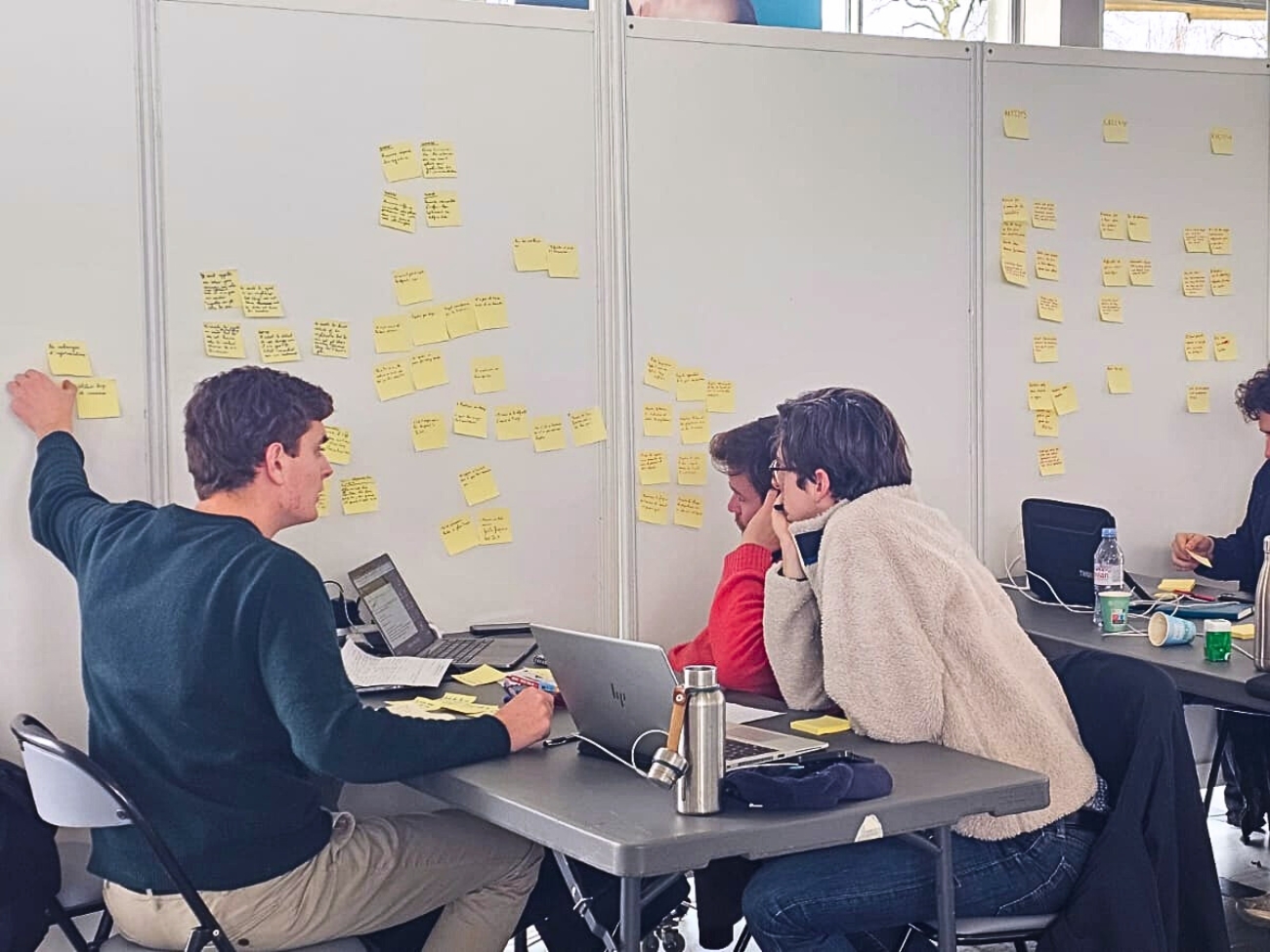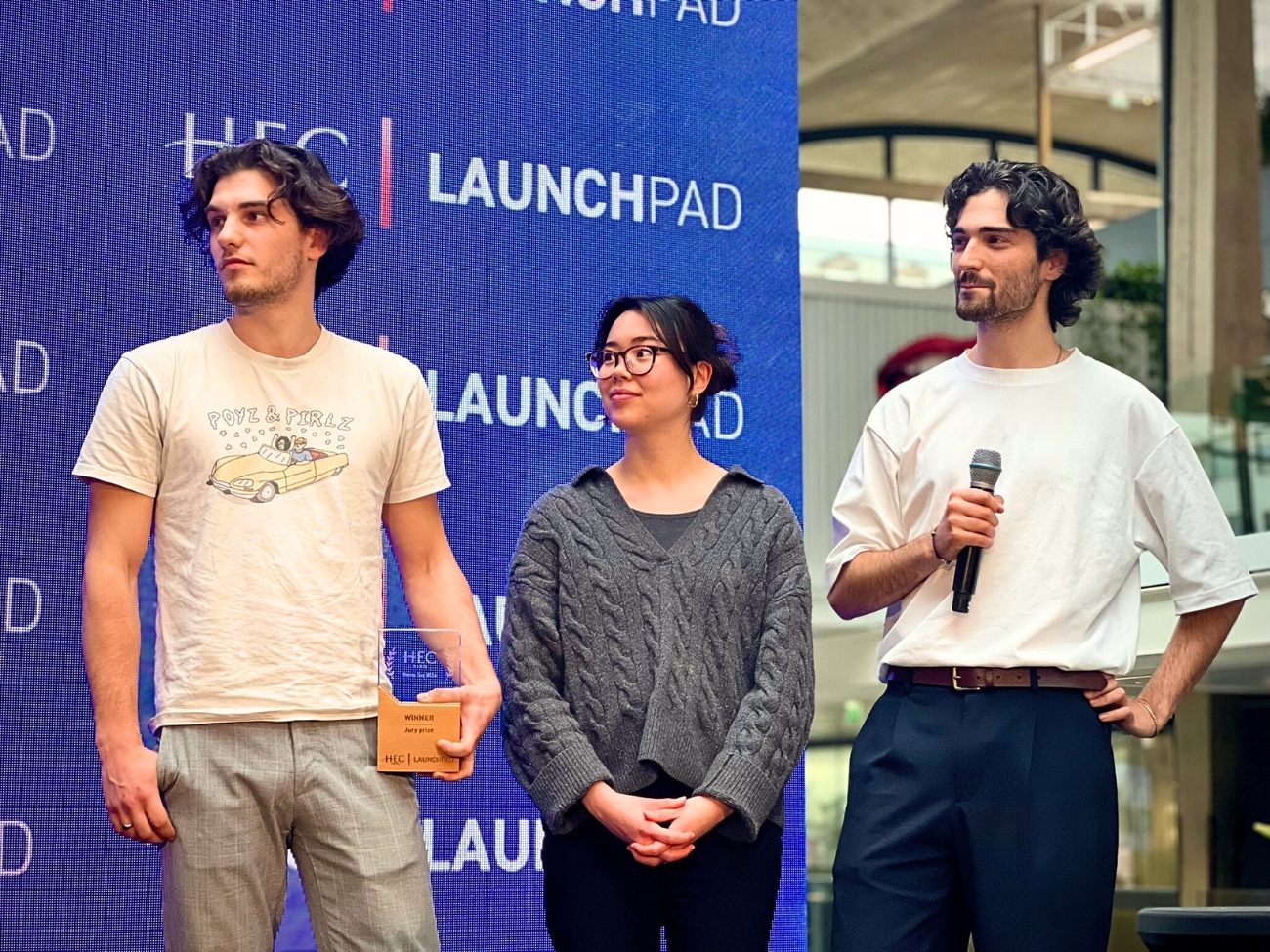How to Join the HEC Startup Launchpad?
How to Join the HEC Startup Launchpad? Selection Criteria and TipsHEC Paris Startup Launchpad undoubtedly stands as Europe's foremost accelerator for business creation, distinguished by its unique methodology and unparalleled ecosystem. Attracting around 250 applications each year, Guillaume Le Dieu de Ville, the program director, shares with us the three essential criteria necessary to secure a spot in HEC Paris Startup Launchpad.

How does the selection process works in the Startup Launchpad?
"We actually have two distinct selection pathways," states Guillaume.
The selection through the X-HEC Entrepreneurs program is the "classic" pathway. It occurs in two phases and aligns with the specific timing of the program's calendar. Applications are open from November to January.
The X-HEC Entrepreneurs program aims to immerse students in the entrepreneurial world, equipping them with the skills to launch their own ventures. The Startup Launchpad serves as a crucial component, seamlessly continuing the journey initiated by this program. Notably, students from X-HEC Entrepreneurs constitute nearly 60% of the applications to the Startup Launchpad.
Other students from Polytechnique, particularly those pursuing dual degrees with HEC Paris, also represent a significant portion of the pool, accounting for nearly one-third of the applications.
For students from other HEC master's programs—including the Master in Sustainability and Social Innovation, Digital Innovation & Acceleration, MSc Data Science & AI for Business, and the Master in Marketing — as well as for those from partner institutions like NYU Stern, ESA Business School, and the schools on the Saclay plateau, the selection process occurs at the end of November.
To gain entry into the Startup Launchpad, these candidates undergo a preparatory session that includes a "market discovery" module, designed to explore the market and identify key challenges.

What are the key selection criteria for a project to be accepted?
The ability to identify problems
"Since the candidates often have limited experience - and that’s precisely the added value the program aims to provide - they are primarily assessed on their ability to identify problems," explains Guillaume.
This skill is essential as it will be continually called upon throughout the program, enabling candidates to lay a solid foundation for designing innovative and sustainable solutions that meet market needs.
Tip #1: Focus on your problem area
At the outset, prioritize a thorough understanding and analysis of the current issues, rather than rushing to find immediate solutions. You'll find that a deep grasp of your challenges allows you to devise more fitting and impactful long-term solutions.
Demonstrate to the jury that you can ask the right questions and identify the concrete challenges you will need to overcome. This clarity will help them understand how the program can be beneficial for you and how they can best support your journey.

Project typology
The concept of impact is central to the Startup Launchpad. In this context, impact is defined as the ability to reach a large number of people, encompassing both societal and industrial challenges.
"The Startup Launchpad's methodology is designed to support projects that exhibit significant agility and scale-up potential."
These are often projects that, due to their potential societal impact, naturally garner greater attention and visibility. They attract the interest of investors and large institutions, who are more inclined to support their development.
Tip #2: Tackle ambitious strategic topics
Ensure your project aligns with this ambition for impact. Whether it is in industry, healthcare, or other critical sectors, candidates who demonstrate clear ambition and tackle strategic topics are well-positioned for success. Your project should not be detached from the real world or the market.
"Perhaps the most important advice I can offer young aspiring entrepreneurs is to be ambitious and tackle strategic topics. This is, in fact, one of the key differentiators in the selection process for the Startup Launchpad."
In this way, you can convince the judges that your team is not only capable of addressing current challenges but also adaptable and poised to evolve according to future market demands.

Team complementarity
Teams must demonstrate a diversity of skills and complementary experiences that they can effectively leverage for their project. The added value of each team member should be clear and identifiable. "The most important thing when building your team is understanding what you can do, to recognize the unique contributions of each member," asserts Guillaume.
Tip #3: Partner with the right people
Ensure you partner with individuals whose diverse skills enrich your own. Highlight and showcase your team by clearly demonstrating the talents and competencies of each member, without relying solely on prestigious degrees or internships.
By doing so, you can demonstrate to the judges that your team is not only capable of meeting current challenges but also adaptable and prepared to evolve with future market demands.

For more information on the HEC Startup Launchpad and to submit your application, click below.